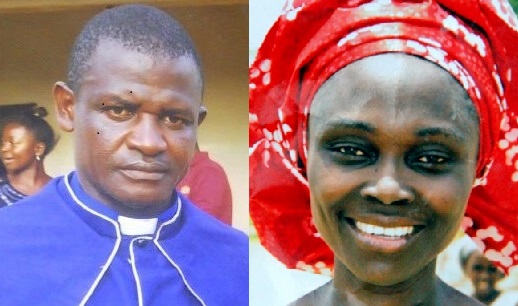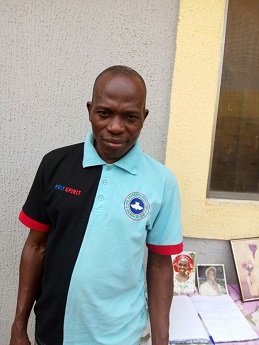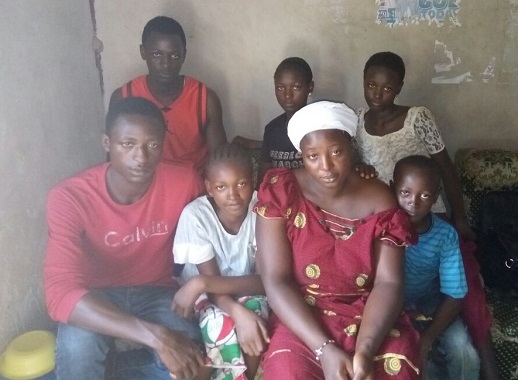 Joseph Kurah,
Joseph Kurah,
murdered on 30 June, and Eunice Elisha, who was killed 10 days later.Twitter: @uncanny_sam / World Watch Monitor
Thousands of people, including journalists from around the world, attended the funeral of Father Jacques Hamel, the French priest murdered on 26 July while presiding over Mass.
The attack on a French priest felt all too close to home for a Western audience, but, as World Watch Monitor reported last week, such events are taking place all the time in other parts of the world. (This interactive map provides some idea of the scope of the attacks.)
There was much less global coverage following the recent murders of two pastors in Nigeria.
Joseph Kurah, regional chairman of the Christian Association of Nigeria (CAN) in the central state of Nasarawa and a pastor of the Evangelical Church Winning All, was murdered on 30 June by suspected Fulani herdsmen on his farm in Obi.
Then on 9 July, Eunice Elisha, 42, assistant pastor at the Redeemed Church of God in the Kubwa region of the Nigerian capital, Abuja was killed. She was buried on 23 July; it would have been her birthday. Local media published photos of her husband, Olowale, and their seven children, all dressed in pale blue, standing next to her grave. Olowale explained how she came to die:
 Olowale Elisha.Open Doors International
Olowale Elisha.Open Doors International
“About three weeks ago, my wife preached next to a mosque, while the imam in the mosque was also preaching. He stopped talking and listened to what Eunice was saying and then told his members to listen to what she was saying because she was speaking the truth about God. When she told me about this, I told her to be very careful.”
After a visit from a stranger who claimed to be a local imam and demanded money from Eunice, Olowale said he “began to feel very uncomfortable”.
He said: “[On 8 July] we prayed all night and Eunice led us in worship songs … Little did I know that this was the last time we would ever pray together. We went to sleep at about 4am. Eunice got up at about 5 and left for her morning preaching, as she did most mornings. She usually came back by about 6.30, but on that day, she didn’t return on time. As I lay in bed, I wondered what could be the matter.
“Meanwhile, my sons had gone out for football training. While they were playing, some boys told them that a woman had just been killed on their street, while she was preaching. Immediately they ran home, shouting.
“I jumped out of bed and ran to where the killing took place. I didn’t find my wife there. All I saw was a pool of blood. I asked the people standing around where my wife was and they told me police had taken her to the station in their van. I went down to the station and there I found the body of my wife.
“I broke down and cried. We were taken into the station and consoled. Eventually someone drove us home because I was in a state of shock.
“I lost my true companion.”
 Martina Kurah and
Martina Kurah and
six of her children.World Watch Monitor
And Martina Kurah spoke of her dead husband, Joseph:
“I will forever remember 30 June as the day I lost my best friend.
“Two days before, Joseph heard that there were woodcutters in the area and asked if he could borrow their machinery to cut down some trees on his farm. While he was on the farm, a young man approached and started arguing with him. He said Joseph was cutting down a tree that belonged to him.
“Joseph reported the incident to the local traditional ruler, who summoned them both to a discussion. The ruler ordered Joseph to pay for the tree, which he did, but following the meeting the youth threatened him, [saying]: ‘A fight is not finished in a day’. Everyone present heard him and the ruler issued a warning to [him].
“Joseph decided to stay away from the farm the next day, but when the youths he had hired to help him called late afternoon to tell him the machine had broken down, he went to assist them. I begged him not to go, but he wanted to help the youths. After replacing the part, he continued to work with them so that they could finish that day.
“As they were packing up, they heard some shouting in the bush, and the next moment a group of Muslims came running towards them. ‘I know they have come for me,’ he apparently told the youths with him. They ran away, but Joseph faced the attackers. They killed him and left his mutilated body.
“Back home, I was growing anxious. A neighbour came to ask if he was home, but when I told her he was not back yet, she said she heard rumours that he was attacked and badly injured [his hands were cut off]. I started shivering, hoping he was just injured. But a few minutes later a church member arrived in tears and told me, ‘Baba was killed.’
“I started shouting and collapsed. Some men from the congregation went and collected his body and took it to the morgue. After all of this, I cried until I had no more tears left.”
Ebenezer, Martina’s oldest son, said he was tempted to take revenge: “At first I made up my mind that I must avenge the death of my father, even if it would cost me my own life. But after many words of encouragement from different people, I realised that two wrongs can never make a right. My father is gone and I will never see him again. My prayer is that those who killed him should never find peace until they repent and turn to Christ.”
CAN accused Fulani herders of the murder and expressed concern over its brutality. They said the recent increase in such attacks against Christians is preventing them from going to their farms.
The two bereaved spouses spoke to Open Doors International, a charity which supports Christians under pressure for their faith, which has started a letter-writing campaign for both families; each includes seven children.